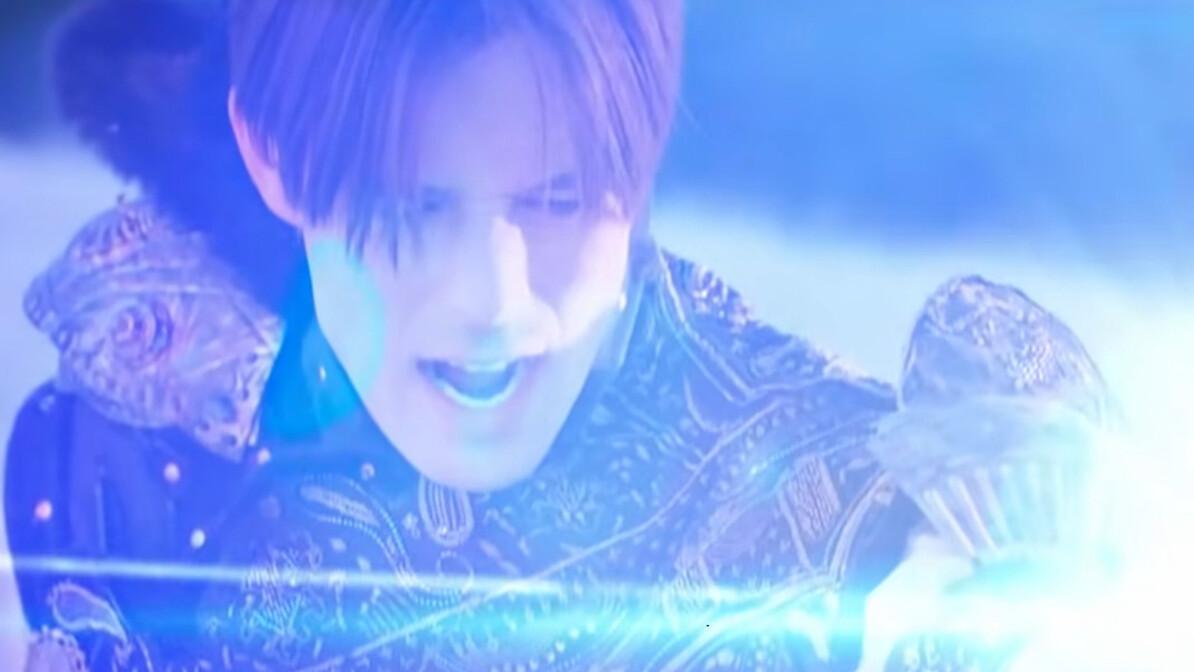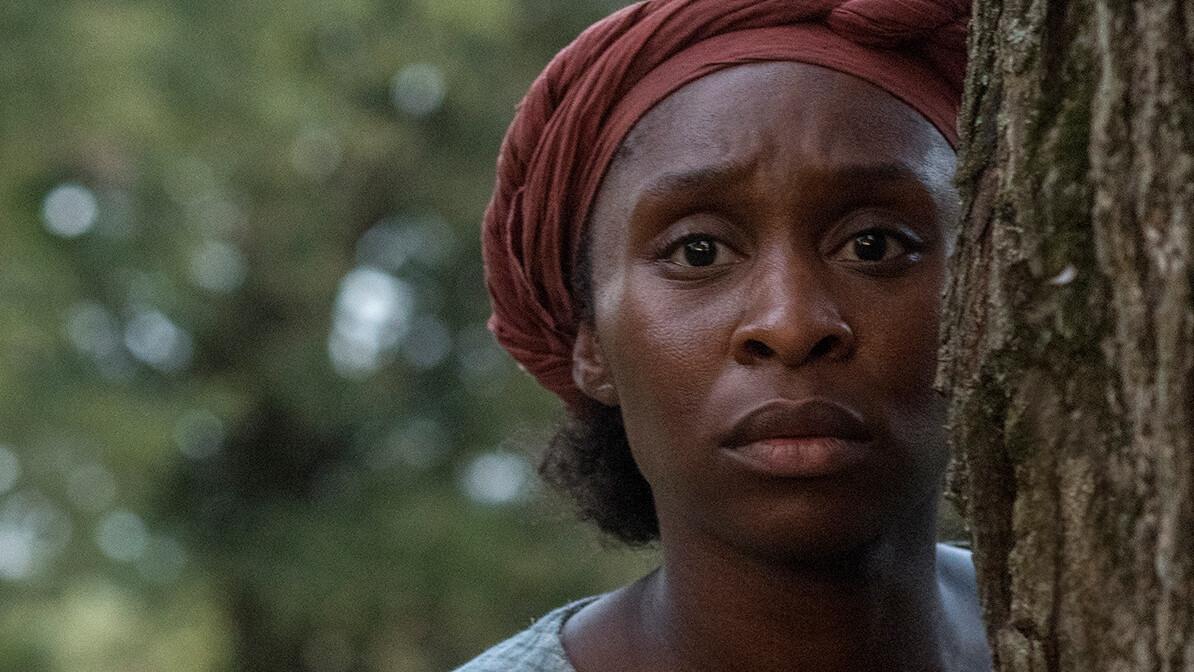- Home
- Entertainment
- Ricky Kim: Heavenquest & Connecting People to Story

Ricky Kim: Heavenquest & Connecting People to Story
John Farrell: Can you please tell me a little bit about Heavenquest: A Pilgrim’s Progress?
Ricky Kim: Heavenquest is a creative movie that was made on a very thin budget. To give you a background, we were moving into the fantasy realm and trying to make a fantasy-style movie that is built in a world that is not existent in our world. So, we had to create scenery and imagery that is absolutely just out of this world. To do that, people automatically go to the ideas of Marvel and Lord of the Rings. I don’t have $150 million in my pocket to do that, but I have a great passion and a great drive. I don’t think that as a creator and a storyteller, you should put yourself in a situation where you can’t do this. So, we got together and built a world and a movie that tells a beautiful story. That’s our movie.
We did it on a minute budget of $250k, which people find absolutely jaw-dropping because they watch the movie and they’re like there’s no way you spent that in this industry. We’re like, “Yes, we did.” That’s our movie. We made a beautiful movie on a small budget, and I think we did a good job.
JF: What Christian themes are in the movie?
Ricky: I want to step back for a second and think about the idea of a Christian faith-based film. I’m not interested in adding a stigma or placing it in a corner of not being high quality. I want to break that. Everybody thinks only films with religious themes are faith-based films, but I don’t think so.
When a movie is written by men and women of faith or when a movie is directed by a man of faith and it has actors, actresses, and staff that are driven by faith, then I believe it’s a faith-based film. That’s across the board. If you had a hamburger shop that is made, developed, and creatively built and marketed by an entire team of business people and they’re all people of faith, then that’s a faith-based hamburger restaurant.
After watching our movie you can really break down a lot of metaphors, characteristics, and understanding of what comes out of the Bible. I wouldn’t say we’re trying to be as authentic and traditional as what the Bible says, but we’re just trying to be faithful people in the way we write. If you are a faithful person, are around Christianity, and follow Christ, you can really draw out characteristics in the characters and metaphors in the themes, which I think run throughout the entire movie.
JF: What is the overall message you hope people take from watching Heavenquest?
Ricky: I think of a life journey and redemption. Those are two relative things that happen in all generations. This is from back before Jesus and until He comes back again. It’s generational that we’re all living life and sometimes you get derailed. We search for truth and we find redemption from what we thought was truth and what isn’t truth.
If you know the truth then you are living a life that is full; if you don’t know the truth, you are living the life that is not full that is leading toward death. So, one might be toward life and one might be toward death. This movie is basically that journey. I think that’s the journey of everybody’s life unless you’re just not aware and don’t really care about why you’re here. If you don’t care at all about why you’re here on earth, then maybe you watch the movie and are like, ‘Oh, okay, that’s cool. Great scenery, great writing.’
I think if you have questions like ‘Why are we on Earth?’ ‘What am I doing in my life?’ ‘What’s my purpose?’ those are relevant to journey and redemption. That’s the story of this movie.
JF: How did you get connected with the movie?
Ricky: If I told you God put it on my desk, I hope you would believe me. But really it was a time in my life where I was looking for an option of trying to do some work on a global project. It kind of just focused over toward Hollywood too. It was a time in my career where I wanted to graduate into a different platform. I’d been working on movies, TV shows, and dramas in Korea and Asia. On my desk came this idea of Pilgrim’s Progress, which has been done in Hollywood and in animation a few times. But it’s such a powerful book that is so vivid and creative and colorful that it’s kind of hard to do because people kept comparing it.
This script was about what would the prequel of that look like? What did John Bunyan mean for it to be about and what was he going through before he even made the book. I thought it was a creative angle on it. The movie impressed me. When I first read the script, I thought these people are really trying to be creative on this. I love that and they brought a good cast and crew together.
I flew to America and met up with the producer and that’s how it started. I kind of evolved into being an executive producer, helping produce the film, getting the right pieces and parts together to make the film actually happen.
JF: I read that you wrote some of your own lines and helped behind the scenes. What all did you do and what was that like?
Ricky: I worked on things like helping develop scripts and ideas for effects, throwing dust when we didn’t have a dust machine, catering and picking up food, leading praise and worship, gathering together to put band-aids on cuts. There’s so much multi-tasking you have to do when you make a film on a small budget.
If we have a lot of money, one person does one thing. One person is in charge of picking up the Starbucks coffee and dropping it off. That’s their entire job. But when you work on a small budget, you’re doing four or five things a day. But then again, I had to separate myself on days that I really needed to focus on just the acting part of it because I wanted to be accountable, responsible, professional, and creative about the art of acting. On those days, we would all have the actors super-focused. Since I had to wear multiple hats, on the days where I had to do a scene I needed some time to prepare. Then when I’m not filming scenes, I went back to producing and being the executive producer.
I drove cars, I poured coffee at 4 a.m. for the early morning calls, made sandwiches, helped put together the pre-edits, the dailies. I did a lot of dailies. I had to look at the film and make sure we got them all. The story was coming together, but I sometimes didn’t sleep for a couple of days straight because we had to do the dailies. It was a beautiful time to grow as a producer. I didn’t direct, but I was sitting next to the director learning as much as possible and helping as much as possible.
JF: You previously mentioned Pilgrim’s Progress. How does the book compare to your film? What are the differences and similarities?
Ricky: First off, his journey. Our movie is also a journey, going from Point A to Point B and not a lot of deviation in the middle. Second, along the journey, there are a lot of characters that come in – just like any other movie where you’re always introducing new characters. The character breakdowns and characteristics of the different roles in our movie are similar to some of the characters in Pilgrim’s Progress.
I’ll use a scenario. You know that David beats Goliath. David was chosen and he walks in there with his rocks and sling and he knocks down Goliath. We’re not trying to portray David beating Goliath, but what happened before David even picked up his rock? Where was he before he showed up? Who were David’s friends? Who were the people watching him knock down Goliath? That’s like a prequel to David and Goliath and it’s a beautiful story.
Before Pilgrim’s Progress happened, what was Christian – the main character — doing? Where did Christian live with? Who was Christian hanging out with? What got Christian to be a Christian? Before Christian even gets into the Northern Kingdom where he was trying to go? What’s happening before then? That was where the creative fantasy was happening. That’s where we brought in a lot of inspiration from Pilgrim’s Progress and a lot of the characteristics and some of the world. That’s what we built.
JF: In the movie, you play Prince Elikai. Tell me a little bit about him.
Ricky: Prince Elikai is the son of the King of the North. The Northern Kingdom and the Southern Kingdom were two completely opposites here, which you can also think of heaven and hell and God and Satan. The son of the Northern Kingdom, Prince Elikai, had the characteristics of Jesus and was a metaphor for Jesus – the character and idea of Jesus. Prince Elikai’s characteristics – the way he talks, walks, thinks, helps, develops, supports – are all built around the characteristics of Jesus. Be that as it may, it was a hard character to jump into at first.
In order to develop my character, I had to be in scripture and look at Jesus and all of the stories about what He did, which I’m familiar with because I’m a Christian and I want to be like Christ. So, building a character around that was an amazing privilege and an amazing opportunity to get closer to Christ.
JF: Where were some of the locations where you filmed?
Ricky: We filmed in Northern California and other parts of California. It was amazing. We had snow, rivers, an ocean, cliffs, beaches, and deserts. We had hills and mountains. We picked a great location in Northern California in the Redding area. We got all of it done in the 28 days we were on a shoot up there. People thought we were shooting in the middle of Ireland or in Australia. No, we shot up in Northern California and we did it all 28 days. We had to pick up dates before and after. Since we shot an entire movie within a month, we were stretching every dollar as much as it could be stretched.
JF: What’s next for you?
Ricky: On my plate right now is to get our organization, Inspire Again, sustainable. There are a lot of donations that come in to keep it sustainable. So, just working on the organization as the director.
But, at the same time, looking at projects that are really inspiring, developmental, and teaching. They are creative. What I noticed is that a lot of people who want to preach and teach and reveal get really preachy and teachy and revealing to a point where they lose creativity. I would love to work with people and gather groups that are working on projects that are super creative and don’t lack creativity or resources.
We’re looking for projects like that. We’ve been developing projects like that. Heavenquest is one of those projects. Not limiting ourselves to having to work only on Hollywood films that are 120-130 minutes and have a large budget. But instead working on a five-second idea or a ten-second idea that can really change the world. We know it can happen.
For example, if you have an Instagram post that is absolutely powerful and creative that two to three million people look at over two weeks, it can change lives. The five seconds can change somebody’s life or the one second it takes to look at a picture or video. Not limiting ourselves to being creative, impactful, and inspiring with only movies but to create in all sorts of media. We keep instilling and developing ideas in this young generation that are impactful, even on the social media scale, which I think is very powerful.
JF: Is there anything that I left out that you’d like to share or something that you want to re-emphasize?
Ricky: With Heavenquest, it’s connecting people to the story and to that journey. I think what is inspiring is that we’re connecting people to their true story and we’re also connecting generations that have been separated and we’re also connecting cultures that have been separated. When cultures unite, when generations unite, and when you also unite yourself with your true story, walls are broken, and amazing revelation comes through that. I think it’s fun to share that story, connecting people to story, generations to story, and cultures to story.
…
To learn more information about Heavenquest and where to purchase DVDs click here.
Trending Now
Sign up today for your Inspiration Today Daily Newsletter
Supercharge your faith and ignite your spirit. Find hope in God’s word. Receive your Inspiration Today newsletter now!
John Farrell
John Farrell serves as the Digital Content Manager at Inspiration Ministries, where he oversees the planning, organization, and management of website content to support the ministry's global digital outreach. With a strong background in writing and editorial strategy, John ensures that the articles, devotionals, and discipleship resources on Inspiration.org are accurate, engaging, and aligned with the ministry's mission.
John has authored more than 1,000 articles, press releases, and features for Inspiration Ministries, NASCAR, Lionel, and Speed Digital. His versatility as a writer is also showcased in his 2012 book, The Official NASCAR Trivia Book: With 1,001 Facts and Questions to Test Your Racing Knowledge.
A graduate of Appalachian State University, John brings excellence and attention to detail to the digital experience at Inspiration Ministries. He lives in Concord, N.C., with his wife and two sons.
Related Articles
March 10, 2025
Finding Total Victory on the Road to Championship
I have been playing competitive golf for 55 years. Through the various stages of my life, my…
March 7, 2025
Average Joe Movie: SCOTUS, Praying Football Coach Backstory
When Coach Joe Kennedy knelt to pray at the 50-yard line after a high school football game, he had…
February 28, 2025
The Power of Story: A Muslim Journey to Hope
Storytelling is one of the oldest and most powerful ways to touch the human heart. Parents tell…
February 27, 2025
‘Harriet’ Movie: Courage, Freedom, Faith
Antebellum abolitionist Harriet Tubman had convictions and courage that helped free herself…
Next Steps To Strengthen Your Walk
Inspiration Today Newsletter
Supercharge your faith and ignite your spirit. Find hope in God’s word. Receive your Inspiration Today newsletter now!
Christian Articles
Find articles to strengthen your walk and grow your faith. We have a wide range of topics and authors for you.
Submit A Prayer Request
We are here for you. Simply click on the button below to reach us by form, email or phone. Together we will lift our hearts and voices with you in prayer.





